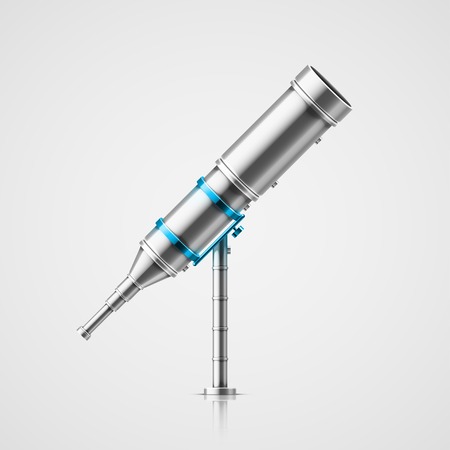1. Understanding Sensitive Scalps: Common UK Triggers
For many in the UK, having a sensitive scalp isn’t just an occasional inconvenience—it’s an ongoing concern that can impact daily comfort and confidence. To truly care for delicate scalps, it’s essential to understand the unique triggers present within British environments. The unpredictable UK climate plays a significant role; frequent rain, chilly winds, and sudden temperature changes can strip natural oils from your scalp, leaving it vulnerable to irritation and dryness. Another key factor is water hardness. Many areas across the country, especially in southern England, have hard water loaded with minerals like calcium and magnesium. These minerals can build up on the scalp, disrupt the skin barrier, and contribute to itching or flakiness.
Allergens are another common culprit. Typical British allergens such as pollen—especially during hay fever season—dust mites, pet dander, and even air pollution can trigger allergic reactions or sensitivities on the scalp. Additionally, everyday haircare products often contain fragrances, sulphates, and preservatives that may not be suitable for those prone to irritation. Recognising these environmental and product-related triggers is the first step towards building an effective care routine tailored for sensitive scalps in the UK.
2. How to Decipher Serum Labels: Key Ingredients for Allergy-Prone Scalps
Choosing the right serum for sensitive scalps in the UK can feel daunting, especially when faced with a long list of unfamiliar ingredients. Understanding what goes into your scalp care is crucial for avoiding irritation and allergic reactions. Here’s how to break down those labels and identify which components are gentle, allergy-friendly, and ideal for the British climate.
Essential Gentle Ingredients to Look For
When scanning serum labels, look for ingredients that hydrate, soothe, and protect without clogging pores or triggering allergies. The following table highlights common safe ingredients versus those best avoided by allergy-prone individuals:
| Gentle Ingredients (Safe) | Common Irritants (Avoid) |
|---|---|
| Aloe Vera | Sulphates (SLS/SLES) |
| Colloidal Oatmeal | Artificial Fragrances |
| Panthenol (Vitamin B5) | Parabens |
| Allantoin | Methylisothiazolinone (MI/MCI) |
| Bisabolol | Alcohol Denat. |
| Chamomile Extract | Essential Oils (in high concentration) |
What These Ingredients Do for Your Scalp
Aloe Vera & Colloidal Oatmeal
Both are renowned for their soothing and anti-inflammatory properties, helping to calm redness and itchiness—a common complaint among sensitive scalps, especially with the UKs fluctuating weather.
Panthenol & Allantoin
These promote hydration and skin barrier repair, keeping the scalp soft and preventing dryness caused by central heating or harsh winds typical in British winters.
Bisabolol & Chamomile Extract
Naturally derived from plants, these ingredients provide extra anti-irritant benefits. They’re particularly helpful after exposure to pollution or hard water—both common in many UK cities.
Ingredients Best Avoided by Sensitive Scalps
Sulphates and parabens are harsh on delicate skin and can strip away natural oils. Artificial fragrances and certain preservatives like MI/MCI are frequent culprits behind allergic reactions in UK shoppers, so it’s best to steer clear if you have a history of sensitivity. High concentrations of essential oils may seem natural but can still trigger contact dermatitis.
Tip for UK Shoppers:
Always patch test new serums behind your ear or on your inner arm before full application. Given the prevalence of hard water in many parts of the UK, opt for products labelled as ‘dermatologically tested’ or ‘hypoallergenic’ whenever possible. Prioritise short ingredient lists to minimise risk.

3. Allergy-Friendly Serums: Top Picks Available in the UK
If you’re dealing with a sensitive scalp, finding the right serum can be a game-changer for your hair and overall comfort. In the UK, there is now an impressive range of allergy-friendly serums, specifically formulated to be gentle, fragrance-free, and thoroughly allergy-tested to minimise irritation.
Fragrance-Free Formulas
For many UK shoppers, artificial fragrances are a common trigger for scalp sensitivity. Thankfully, high street favourites such as Eucerin DermoCapillaire Calming Urea Scalp Treatment offer a completely fragrance-free experience. This lightweight serum is available at Boots and Superdrug and is formulated with urea and lactate—both known for soothing irritation and restoring moisture without causing further sensitivities.
Allergy-Tested Options
The La Roche-Posay Kerium Sensitive Scalp Serum stands out thanks to its hypoallergenic formula, which has undergone rigorous dermatological testing. It’s designed to instantly calm itchiness while reinforcing the scalp barrier with ingredients like thermal spring water and panthenol. La Roche-Posay’s products are widely accessible both in-store and online throughout the UK.
Budget-Friendly Alternatives
If you’re after an affordable yet effective solution, consider Cetraben Lotion. While primarily marketed for skin, it’s gentle enough to use on sensitive scalps as well. Free from common allergens and perfumes, Cetraben can often be found at larger supermarkets or pharmacies like LloydsPharmacy.
Online Exclusive Picks
For those who prefer shopping online, Balmonds Scalp Oil is a natural British option made with cold-pressed oils and absolutely no artificial additives or fragrances. The formula is suitable for vegans and those with allergies alike, making it a top choice for many across the UK looking for plant-based relief.
Choosing the right serum can make all the difference if you have a sensitive scalp. Always check labels for “fragrance-free” and “allergy-tested” claims, and don’t hesitate to consult your pharmacist or dermatologist before trying new products. With so many quality options readily available on the UK high street and online, soothing your sensitive scalp has never been easier.
4. The British Approach: Patch Testing & Smart Usage Tips
When it comes to sensitive scalps, the British approach is all about cautious integration and prioritising comfort. Patch testing is a must for UK shoppers, especially with serums that contain active ingredients or natural extracts. Here’s your guide to navigating patch tests, ideal frequency of application, and integrating allergy-friendly serums into your daily haircare routine without worry.
Patch Testing: Why It Matters
Patch testing helps you avoid unexpected allergic reactions by assessing how your skin responds to a new product. This is particularly important for those with sensitive scalps, as even hypoallergenic serums can trigger irritation in some individuals.
How to Perform a Patch Test
| Step | Description |
|---|---|
| 1. Select Area | Choose a discreet spot behind the ear or on the inside of your elbow. |
| 2. Apply Serum | Dab a small amount of serum on the chosen area. |
| 3. Wait | Leave uncovered for 24 hours. Avoid washing the area during this period. |
| 4. Monitor | Check for redness, itching, swelling or discomfort. If any reaction occurs, do not use the product on your scalp. |
Frequency of Application: Less is More
Sensitive scalps benefit from a ‘less is more’ philosophy. Start by applying the serum once or twice weekly. Gradually increase frequency only if your scalp shows no signs of irritation. Always follow instructions provided by the manufacturer and consult with your pharmacist or GP if unsure.
Suggested Integration Routine for UK Shoppers
| Step | Routine Details | Tip for Sensitive Scalps |
|---|---|---|
| Cleansing | Use a mild, fragrance-free shampoo suitable for sensitive skin. | Avoid hot water; lukewarm is best. |
| Patching & Waiting (First Use) | Patch test new serum as described above before full application. | Patience pays off; don’t rush this step! |
| Serum Application | Apply a small amount directly to the scalp as per product guidelines. | Avoid overlapping multiple new products at once. |
| Monitoring Results | Observe your scalp after each use for any signs of irritation. | If any discomfort appears, discontinue use and seek advice. |
| Consistency Check-In | If well tolerated after two weeks, consider increasing application frequency gradually. | Keep a simple diary to track responses over time. |
The British Sensibility: Trust and Transparency Matter
UK consumers value honest labelling and clear ingredient lists—look for brands that provide detailed information about potential allergens and sourcing. When in doubt, consult with a local pharmacist or dermatologist familiar with British regulations and sensitivities. Remember: gentle integration and careful monitoring are key to maintaining scalp health while enjoying the benefits of allergy-friendly serums tailored for sensitive scalps in the UK.
5. Cultural Considerations: How UK Lifestyle Factors Influence Scalp Sensitivity
Living in the UK means your scalp is exposed to a unique blend of environmental and lifestyle factors that can directly impact sensitivity and overall health. Understanding these influences will help you tailor your hair care routine for optimal comfort and protection, especially if you’re prone to allergies or irritation.
British Weather: Damp, Cold, and Unpredictable
The famously unpredictable British climate—with its frequent rain, chilly winds, and dampness—can leave the scalp vulnerable to dryness or excess oil production. Central heating during colder months further strips moisture, potentially leading to itchiness and flakiness. To counteract this, opt for serums rich in hydrating ingredients like glycerin or panthenol, and consider using a gentle exfoliating scrub once a week to remove dead skin cells without aggravating sensitivity.
Hard Water Woes
Many regions in the UK have hard water, which contains high levels of calcium and magnesium. These minerals can build up on the scalp and hair, causing dryness, irritation, or even allergic reactions over time. If you notice persistent scalp discomfort, try installing a shower filter designed to reduce mineral content. Additionally, use clarifying serums or shampoos formulated specifically for sensitive scalps—look for products that mention chelating agents (like EDTA) which help dissolve mineral deposits without harshness.
Urban Living: Pollution and Stress
Cities such as London, Manchester, and Birmingham expose residents to higher levels of air pollution. Pollutants settle on the scalp and can block follicles, trigger inflammation, or worsen allergies. Combat this by incorporating antioxidant-rich serums containing vitamin E or green tea extract into your routine. Rinse your scalp thoroughly after spending time outdoors and consider wearing hats or scarves for added protection on high-pollution days.
Adapting Your Routine for Local Conditions
To effectively manage sensitive scalps in the UK, start by choosing allergy-friendly serums free from sulfates, artificial fragrances, and common allergens. Adjust your washing frequency based on weather conditions—wash less often during dry spells and more frequently if sweating or exposed to pollutants. Finally, consult local dermatologists or trichologists familiar with British environmental triggers for tailored advice on ingredient selection and care routines.
Your Scalp’s Best Defence: Stay Informed
By recognising how the UK’s weather patterns, water quality, and urban stresses affect your scalp, you’ll be better equipped to select products and practices that protect against irritation and support long-term scalp health. Adaptation is key—listen to your skin’s needs and adjust your regimen as seasons change or lifestyle factors shift.
6. When to Seek Professional Advice: NHS & Trichologist Resources
While many sensitive scalp concerns can be managed at home with gentle, allergy-friendly serums and careful product selection, there are times when professional help is essential. Understanding when to consult a healthcare provider can make all the difference in your scalp health journey.
When to Visit Your Local Pharmacist
If you notice mild irritation, itching, or dryness that persists despite switching to hypoallergenic products, your local pharmacist is an excellent first point of contact. UK pharmacists are trained to advise on over-the-counter remedies and can recommend suitable scalp treatments or medicated shampoos without the need for a GP appointment.
Consulting Your GP for Persistent Symptoms
If symptoms such as redness, flaking, swelling, or soreness persist for more than two weeks, or if you develop open sores or signs of infection (such as pus or increasing pain), it’s advisable to book an appointment with your GP. The NHS offers clear pathways for managing skin and scalp conditions, and your GP can refer you for further investigations or prescribe stronger treatments if necessary. You can find further information about scalp health and local services on the NHS website.
Seeing a Trichologist: Specialist Scalp Care
For complex, ongoing issues—such as unexplained hair loss, severe allergic reactions, or chronic sensitivity—a consultation with a registered trichologist may be beneficial. Trichologists specialise in hair and scalp disorders and can provide tailored advice after an in-depth assessment. You can search for accredited trichologists in your area via the Institute of Trichologists. Remember, professional guidance ensures you receive appropriate care based on your individual needs—so don’t hesitate to seek help if your sensitive scalp isn’t improving with self-care measures.


